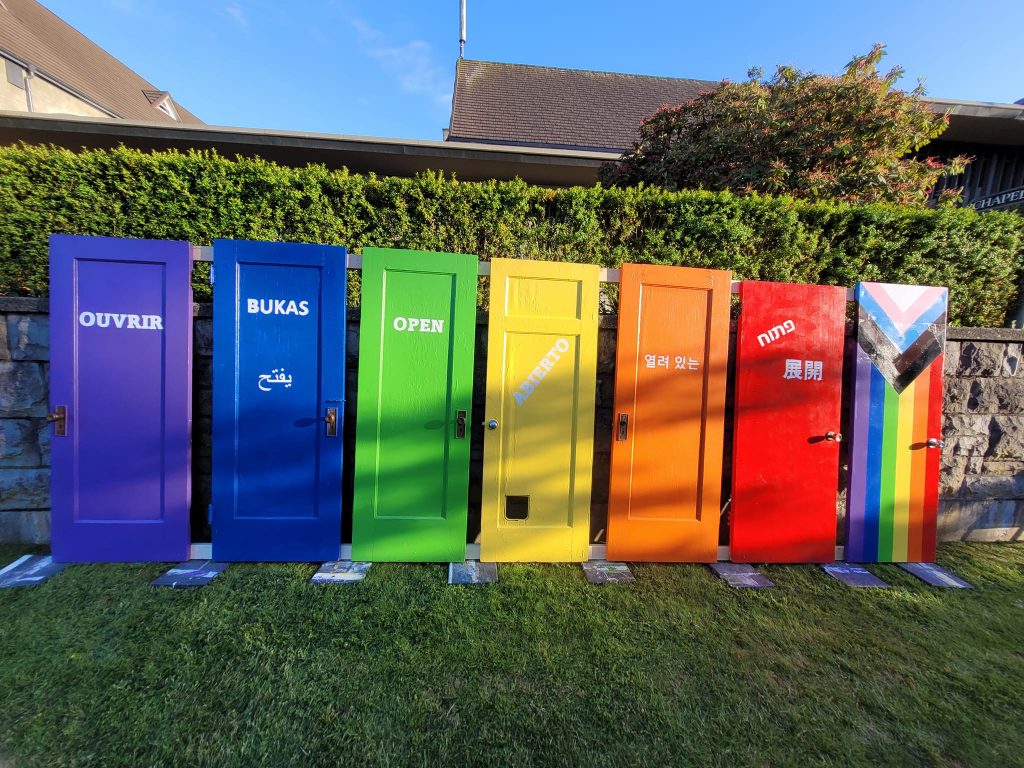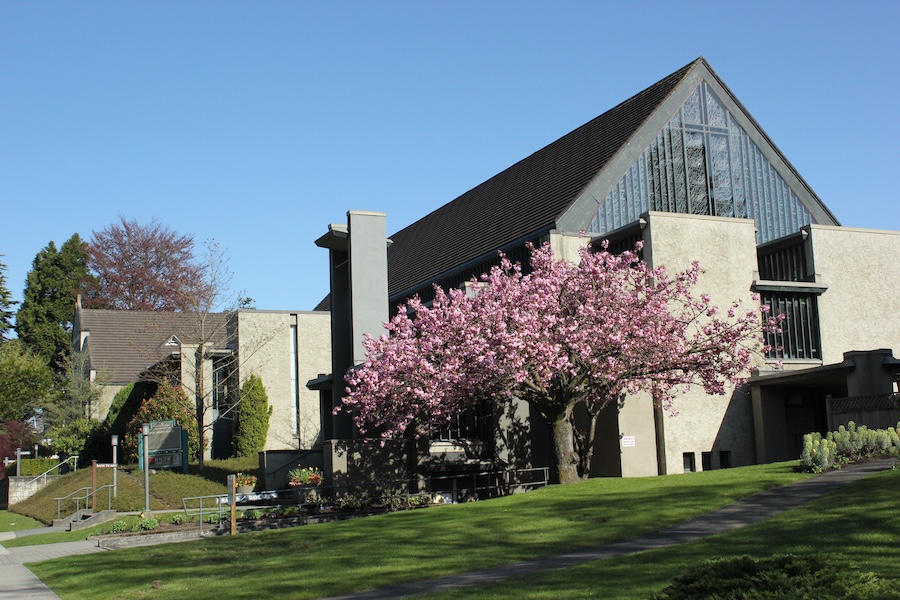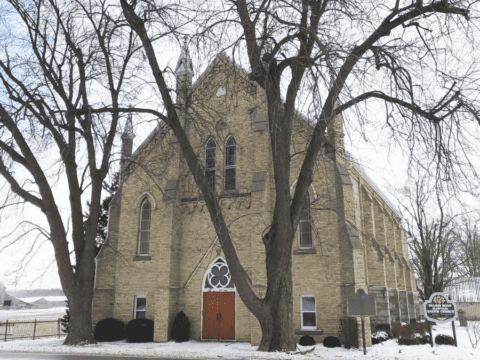A homophobic and transphobic hate mail campaign from the United States is targeting 2SLGBTQ+-affirming United churches in Canada.
The packages, all sent from the same address in Oklahoma, contain letters from a sender labelled Jeff Woodward and a USB stick. The letter promotes three ebooks written by Jeff Woodward. The books appear to be about his personal ideologies on the 2SLGBTQ+ community, Jesus and evolution. Woodward did not respond to requests for an interview.
You may unsubscribe from any of our newsletters at any time.
The letter asserts that “a vast amount of data scientifically proves that homosexual identities are a slavery to sin and to Satan.” Affirming churches strive to be fully and publicly inclusive of people of all sexual orientations and gender identities.
“It’s just painting queer folks as demonic,” according to Pam Rocker, director of Affirming Connections. The organization supports existing Affirming churches in Central and Southern Alberta.
The packages, also sent to some non-Affirming churches, started arriving at Ontario churches in December 2023, then in Alberta and British Columbia in January and February. When Rev. Thérèse Samuel sent out a newsletter warning churches about the packages, she learned some had arrived in Canada in September 2023. Vancouver’s Shaughnessy Heights United received the mail in January. Rev. Deb Walker, minister of connection and social justice at Shaughnessy Heights United, describes the contents as “shabby theology” and “somebody’s lax opinion.” She is bothered that it came across the US border and that the church administrator had to sign for it.
Typically, the package sports a customs declaration claiming the package is a gift. Walker identifies as a cisgender heterosexual woman and notes that the material would impact her differently than it would her transgender colleague. “In this day and age, why do people have to be mindlessly harassed by this kind of crap? Minding your own day, opening your mail at work –you should not ever have to be exposed to this kind of thing,” says Walker. Affirming Connections and Affirm United, a United Church partner working toward full inclusion of LGBTQ2S+ people within the church and society, publish contact information for Affirming churches on their websites.
“Affirming Ministries want to be found,” explains Rocker. Unfortunately, that available information makes Affirming churches an easy target for this kind of attack.
Samuel, minister of right relations and social justice for the southwestern Ontario Regional Councils of Antler River Watershed, Western Ontario Waterways and Horseshoe Falls, was the first to ring alarm bells in December.
More on Broadview:
The week before Christmas, another minister contacted Samuel describing the mail from Edmond, Okla. As word circulated among clergy, two more incidents were reported to Samuel. At that point, she sent an urgent newsletter warning about the packages to individuals and communities of faith who receive the regular newsletter in Antler River Watershed, Horseshoe Falls and Western Ontario Waterways Regional Councils. She also shared it with Affirm United and a network of staff in regional councils across the United Church of Canada who support justice ministries.
She asked churches that already received it or still might receive it to report it to the Regional Council and Canadian Border Services Agency (CBSA). Samuel recalls one person replied, “I just put it in my file with [other] hate mail.”
“That made me realize that this is happening, and we don’t know about it,” she says. Julie Graham, a regional minister in Saskatoon, opened a single case about the packages with CBSA earlier this year so all similar incidents could be grouped together. She says she hopes the parcels will be stopped at the port of entry.

In an emailed statement, CBSA confirmed it is aware of the issue but could not provide further information because details are protected by the federal Privacy Act.
However, Rebecca Purdy, a senior spokesperson for CBSA, wrote that the organization can detain items for further examination and refuse entry to any “deemed inadmissible.”
At Westdale United in Hamilton, Ont., Rev. Evan Swance-Smith explains that while the church has not received this particular campaign, it has been subjected to several transphobic and homophobic incidents.
“This is so commonplace now that I don’t even know if it fazes me, which is kind of frightening,” Swance-Smith reflects. She says the church’s social media account has seen an increase in transphobic and homophobic comments over the last four to five months, including an increase any time a controversial law or hate crime — inside or outside of Canada — is in the news.
Many Affirming churches staff Swance-Smith talks to say they have experienced incidents that might not seem like a big deal individually, but become concerning when pieced together.
“When you look at it on a whole,” Swance-Smith says, “there’s this culture happening towards our Affirming churches that is problematic and frightening and worrisome.”
Following a police safety audit, Westdale qualified for a government grant for churches that have been the target of hate crimes. The grant money has allowed them to add security measures to ensure staff and congregant safety, as Swance-Smith feels security is something any church could improve.
Beyond that, Swance-Smith suggests having clergy trained in trauma response counselling to support marginalized people who are victims of targeted hate.
A spokesperson for the Canadian Anti-Hate Network wrote in an email that the organization is not aware of other campaigns like this one, calling it “pretty alarming.”
Despite this, Graham cautions that, though disturbing, one person’s obsession should not distract from the greater concern: homophobic and transphobic legislation creeping across the country. This includes recent limitations to gender-affirming health care for transgender youth and their ability to use preferred pronouns.
Graham and Rocker stress that churches that receive this correspondence should take clear photos of the mailing label and the print material and send them to the Regional Council. They will add the information to the CBSA case.
Samuel encourages those who have received this or any hate mail to report it to the people in their Regional Councils who support justice ministries.
“Because had that one person not sent it, I wouldn’t have known.”
***
Leslie Sinclair is a freelance journalist in Toronto.












